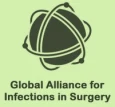The World Antimicrobial Awareness Week is a good reminder that we must all work together to slow the spread of antimicrobial resistance (AMR).
AMR has emerged as one of the principal public health problems of the 21st century. This has resulted in a public health crisis of international concern, which threatens the practice of modern medicine, animal health and food security. Combating resistance has become a top priority for global policy makers and public health authorities. New mechanisms of resistance continue to emerge and spread globally, threatening our ability to treat common infections. Antibacterial and antifungal use in animal and agricultural industries aggravates selective pressure on microbes. A One Health approach is urgently required. The burden of AMR is difficult to quantify in some regions of the world because enhanced surveillance requires personnel, equipment and financial resources that are not always available. However, the worldwide impact of AMR is significant in terms of economic and patient outcomes; due to untreatable infections or those requiring antibiotics of last resort (such as colistin) leading to increased length of hospital stay, morbidity, mortality and treatment cost. Antibiotics can be life-saving when treating bacterial infections but are often used inappropriately, specifically when unnecessary or when administered for excessive durations or without consideration of pharmacokinetic principles. Large variations in antibiotic consumption exist between countries and whilst excessive use remains a major problem in some areas of the world, elsewhere there is lack of access to many antimicrobial agents. AMR is a natural phenomenon that occurs as microbes evolve. However, human activities have accelerated the pace at which bacteria develop and disseminate resistance. Inappropriate use of antibiotics in humans and food-producing animals, as well as poor infection prevention and control practices, contribute to the development and spread of AMR.
Efforts must be aimed at the general public, healthcare professionals, food producing farmers, civil society organizations and policy makers. An effective and cost-effective strategy to reduce AMR should involve a multi-faceted approach aimed at optimizing antimicrobial use, strengthening surveillance and infection prevention and control, and improving patient and clinician education regarding the appropriate use of antibiotics.
AMR poses a global challenge. No single country, however effective it is at containing resistance within its boundaries, can protect itself from the importation of antibiotic resistance through travel and trade.
The global nature of AMR calls for a global response, both in the geographic sense and across the whole range of sectors involved. Nobody is exempt from the problem.
Although the current magnitude of the problem, healthcare workers play a central role in preventing the emergence and spread of resistance. Appropriate use of antibiotics should be integral to good clinical practice and standards of care. Healthcare workers should be aware of their role and responsibility for maintaining the effectiveness of current and future antibiotics specifically by:
• Following locally-developed customized antibiotic guidelines and clinical pathways
• Supporting and enhancing IPC including correct hand hygiene protocols
• Supporting and enhancing surveillance of ABR and antibiotic consumption
• Prescribing and dispensing antibiotics only when they are truly required
• Identifying and controlling the source of infection
• Prescribing and dispensing appropriate antibiotics(s) with adequate dosages i.e. administration of antibiotics according to pharmacokinetic-pharmacodynamic principles
• Reassessing treatment when culture results are available
• Using the shortest duration of antibiotics based on evidence
• Educating healthcare workerss and staff how to use antibiotics wisely

